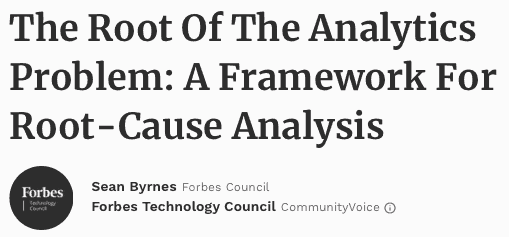Forbes Touts Importance of Root Cause Analysis in Business Improvement

I read an interesting article in Forbes that mentioned root cause analysis. It highlighted the idea that big data wasn’t enough to make intelligent decisions and implied that root cause analysis was a crucial tool when designing and implementing business improvements.
The author, Sean Byrnes, wrote that data often causes:
“…’fire drills’ where teams of people scramble to try
and find the underlying causes of important changes.”
We have often observed this, not only in financial performance, but also in quality, equipment reliability, production, and safety.
If you are reading this blog, you know what to do. Apply advanced root cause analysis – TapRooT®.
To start, you can apply TapRooT® reactively to understand the causes of issues after accidents or incidents (quality problems, safety issues, cost overruns, equipment failures, …). When you get your improvement act together, you can apply TapRooT® proactively to prevent accidents before they happen.
If you don’t know about TapRooT®, you should attend training. The upcoming public course schedule is HERE.

Don’t miss this opportunity to learn to apply root cause analysis to gain an:
“…enormous advantage against competitors…”
as described in the Forbes article.



